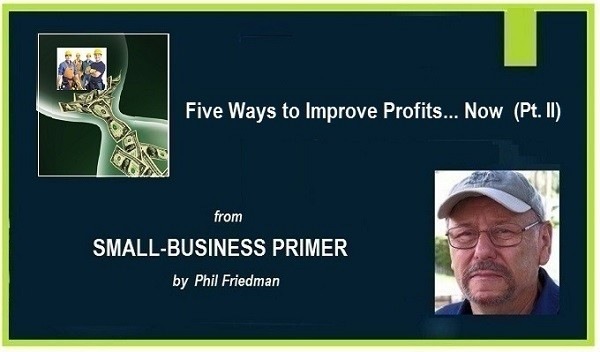What Managers Should Know About Teams and Teamwork ... But Often Don't

AND IT'S PROBABLY NOT WHAT YOU THINK...
I work in the large-yacht construction sector, where most companies exhibit a relatively flat organizational structure. In that venue, cross-functional teams are, of necessity, the order of the day. So, you would think that most everyone working in the field would understand the fundamental nature of teams and teamwork, and how they can function to best advantage. Yet, in my experience, most managers and others miss two absolutely key points about teams and teamwork:
1) the single most important defining characteristic of a good team member, and
2) the single most detrimental management errora team leader or manager can make.
Let me explain.
If you ask most people, "What is the single most important defining quality of a good team member?", you will get answers like:
- Someone who readily does more than his or her share of the work.
- Someone who puts forth a 125% effort... often to offset lesser efforts by other team members.
- Someone who can be counted on to do their job.
- Someone who leads others in bringing the effort over the top.
No doubt you can add your own examples, but I think these pretty much convey the gist of the matter. It's all standard and familiar, I'm sure. Moreover, at this point, you may even be wondering what the big deal is.
Notice that all of these more or less stock responses deal with what the individual brings or should bring to the team. I suggest, however, that what is more important is how the individual views his or her relationship to teamwork and cooperative effort.
I suggest further that the single most important characteristic of a good team member is not his or her ability to do his or her job, but rather his or her ability to trust other team members to do their jobs.
"Whoa," some of you say, "that's the mentality of a follower, not a leader!"

Not so. Consider, if you will, the well-evolved dynamics of baseball teams. Suppose a high fly ball is hit to left center field, where both the left fielder and the center fielder can potentially make the catch. Suppose further that each of them begins to position to make that catch, and the left fielder calls for it.
If the center fielder is a "good team player", what should he or she be doing? What if that center fielder feels that he or she is better qualified to make the play? Should he or she simply bull ahead and make the catch?
Not on your life! The result is likely to be a player collision and a botched play, or worse, injuries to one or both players. No, the center fielder is expected to recognize the established rules of procedure in the circumstances, and trust that his teammate will do the job and make the catch. And It doesn't strain the metaphor to say the same applies in business situations.
Operational and management teams are most effective when they are cohesive and each member trusts the other members of the team to get their assigned jobs done...
If a team is to function to optimal levels, individual ego and ambition have to be subordinated to the cooperative effort. But that means more than a team member performing his or her job or task set superbly; it means trusting -- and leaving -- the other team members to fulfill their respective tasks and assignments.
Once said, this may appear to be such a simple truth that some might believe it doesn't even need saying. But they are wrong. It is a simple truth which is all too often forgotten, and of which we all need to be reminded when we're brought together to form, lead, or work as part of a team.
The other side of the coin is that anyone called upon to form and lead or manage a team has scrupulously to avoid allowing any member of the team to slack off or coast, whether from sloth or simple inability to keep up. When working in, and with teams, it is critically important to avoid confirming one of my favorite -- or perhaps least favorite -- general life maxims:
No good deed shall ever go unpunished...
In case you haven't run across that maxim before, in the workplace, it means that, if you do a good job when some others don't, you will end up doing both your work and theirs... although you all will continue to be treated and paid as usual.
When a member or members of a team fail to keep up, team leaders and managers need to avoid taking the path of last resistance, which is to allow the burden to shift to those who are already doing a good job. Although a team leader or manager might have to employ such a tactic in the very short term, that team leader or manager needs to correct the situation at the earliest opportunity, and certainly never allow it to continue into even the "medium" term, let alone be tolerated as a longer term solution.
To do so will undermine the cohesiveness of the team and the trust which each member must have in the other members of the team (not to mention in the team leader or manager). And this will ultimately result in far less than optimal team performance, perhaps even abject failure.
These two "truths" are two sides of the teamwork coin, a token, if you will, that should be kept in one's pocket and fingered as a reminder whenever one is called upon to lead, manage, form or join a business team. ― Phil Friedman
Author's Notes: If you found this article of value, you may want to take a look at some of my other writing about small business operations and management:
"What I Learned About Entrepreneurs From the Founder of Monster.com"
"Tips for Successful Consulting"
"Maximizing Throughput on Fixed Assets and Overheads"
If you'd like to receive notifications of my writings on a regular basis, click the [FOLLOW] button on my beBee profile. As a writer-friend of mine says, you can always change your mind later.
Feel free to "like" and "share" this post and my other LinkedIn articles — whether on LinkedIn, Twitter, Facebook, or Google+. I ask only that you credit me properly as the author, and include a live link to the original work.
If you are interested in yachts, are allied with the yacht building industry, or operating a small business in another sector, you should consider joining my beBee Hive,
THE PORT ROYAL GROUP for Yacht Builders, Buyers and Owners,
where you will find experienced industry professionals discussing a wide range of topics. The ongoing conversation is always interesting, informative, and 100% industry insider.
About me, Phil Friedman: With 30 some years background in the marine industry, I've worn numerous hats — as a yacht designer, boat builder, marine operations and business manager, marine industry consultant, marine marketing and communications specialist, yachting magazine writer and editor, yacht surveyor, and marine industry educator. I am also trained and experienced in interest-based negotiation and mediation. In a previous life, I taught logic and philosophy at university.

To schedule an appointment for a free 1/2-hour consult email: info@learn2engage.org.
Text Copyright © 2016 by Phil Friedman — All Rights Reserved
Images Credits: Phil Friedman, FreeDigitalPhotos.net, Stuart Miles, and Wikipaedia
Articles from Phil Friedman
View blog
IMPROVE CAPTURE OF BILLABLE HOURS TO BOOST GROSS PROFIT WITHOUT ADDED OVERHEADS... · Preface: · This ...

LOOKING BACK AT THIS PIECE I WROTE FOR PASSAGEMAKER MAGAZINE IN 2014, IT SEEMS THAT THE DARK CLOUD S ...

THIS SERIES OF LITERARY SELF-INDULGENCES IS DUBBED "THE ROAD CHRONICLES" BECAUSE THEY USE BEING ON A ...
Related professionals
You may be interested in these jobs
-
Busser
Found in: Lensa US P 2 C2 - 5 days ago
Fort Brewery Fort Worth, United StatesPlease fill out the following survey when submitting your application: · At Fort Brewery, Pizza, and Wine we believe in doing all things with greatness in mind. Our mission statement is By the Slice, By the Glass, We Kick Ass We take pride in our scratch kitchen, delicious craft ...
-

Maintenance Engineer Building Operations
Found in: Jooble US O L C2 - 6 days ago
Waste Management Tecumseh, MI, United StatesAs an EEO/Affirmative Action Employer, all qualified applicants will receive consideration for employment without regard to race, color, religion, sex, sexual orientation, gender identity, age, national origin, disability, or veteran status. · Tired of just doing preventative ma ...
-
Field Service Technician l
Found in: Lensa US Remote C2 - 4 days ago
Canon United States Remote jobAbout our Company - Canon Solutions America, Inc. empowers companies of all sizes to succeed by supplying market leading enterprise, production, and large format printing solutions, supported by exceptional professional service offerings. With unwave Field Service Technician, Ser ...




Comments
Phil Friedman
7 years ago #6
@Mohammad Azam Khan- do not worry, I understand you well. And Jack Kerouac was one of my heroes, when I was on the road. Cheers!
Phil Friedman
7 years ago #5
@Mohammad Azam Khan- do not worry, I understand you well. And Kack Kerouac was one of my heroes, when I was on the road. Cheers!
don kerr
7 years ago #4
Phil Friedman
7 years ago #3
Phil Friedman
7 years ago #2
Phil Friedman
7 years ago #1
Thank you, Juan Imaz, for reading and commenting. Cheers!